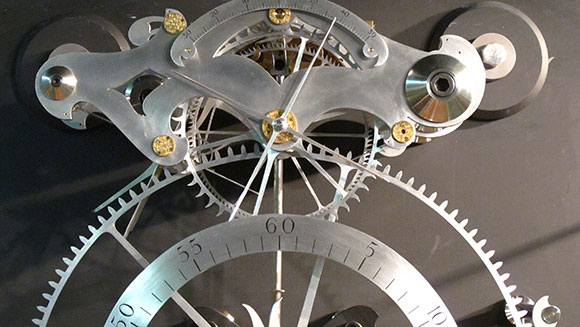Video: How “perfect clock” redefines timekeeping history, 300 years on

A pendulum clock based on an 18th century theory dismissed at the time, has been recognised by Guinness World Records for its accuracy.
Proving perhaps to have been too visionary for its times, “Clock B” has been awarded with a world record for most accurate mechanical clock with a pendulum swinging in free air, vindicating the vision of its original designer John Harrison, pictured below.

Work on Clock B was started in 1975 by Martin Burgess, based on a design by 18th Century clockmaker Harrison, who is also famously renowned as the finder of longitude at sea.
The theoretical basis of the clock was so radically different to the traditional approach to making precision pendulum clocks that Harrison’s works were quickly dismissed as the “ramblings” of an old man under a savage criticism.
Harrison never completed his own clock in his lifetime, and Burgess’s construction, which is made from modern materials, represents the first and unique scientific test of Harrison’s theory 300 years after being published.
Owned by Donald Saff and adjusted and trialled by the Royal Observatory Greenwich, the extraordinary time keeper has successfully passed a 100-day trial after being sealed in a clear plastic box to prevent tampering.

“Pendulum timekeeping is obsolete in terms of scientific usage but what Clock B can show us is opening up a whole new avenue of study of the mechanics of pendulums in free air. There is more to come, this story is not over yet”, commented Rory McEvoy, curator of Horology at Royal Observatory Greeenwich (pictured above with Mr Saff).
Discover the incredible story on the video below.
Pics: National Maritime Museum, London


